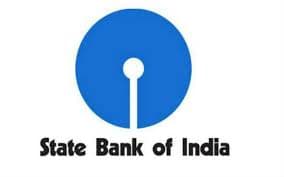The Madras High Court has dismissed a petition filed by a candidate challenging the cancellation of his appointment by the State Bank of India (SBI) based on an adverse CIBIL report. Justice N. Mala upheld the bank’s decision, stressing that financial discipline is essential for banking employees as they handle public money.
The petitioner, P. Karthikeyan, was selected for the post of Circle Based Officer (CBO) after clearing the examination, interview, medical checks, certificate verification, and CIBIL verification. However, after an adverse CIBIL report surfaced, SBI cancelled his appointment through an order dated 9 April 2021.
“One more aspect that needs mention here is that the bank took a prudent decision that the candidates with history of default in repayment of loans and adverse CIBIL and other external agencies report were ineligible. The probable rationale behind the said criteria may be that in banking business, the employees deal with public money and therefore financial discipline needs to be strictly maintained,” the court said.
The petitioner argued that he had no outstanding loans or adverse credit at the time of notification and had settled all dues before his appointment. He claimed that similarly placed candidates were allowed to continue their service, alleging discrimination.
SBI, on the other hand, submitted that as per Clause 1(E) of the eligibility criteria, candidates with records of default in loan repayments or adverse CIBIL reports were ineligible for appointment. The bank pointed to his CIBIL report, which revealed nine irregular credit facilities, more than fifty credit enquiries, and multiple loan defaults, describing it as clear evidence of financial indiscipline.
The court reviewed the recruitment advertisement and observed that it specifically disqualified candidates with adverse credit records. It noted that the petitioner had also admitted to defaulting on personal loans due to family issues, though he later cleared them.
“The explanation now sought to be given by the petitioner that the said clause should be read to mean that, on the date of notification there were to be no dues or default in repayment of loans/credit card dues cannot be endorsed, as it goes against the letter of the clause,” Justice Mala remarked.
The High Court relied on Supreme Court precedents to hold that eligibility criteria cannot be challenged after a candidate has participated in the recruitment process. Since the petitioner had not challenged Clause 1(E) earlier, the Court ruled that he could not question it now.
Regarding the allegation of discrimination, the court found that other candidates who were permitted to join had resolved minor irregularities within the permissible limits, whereas the petitioner had defaulted on multiple EMIs and had a poor repayment track record.
Further there must be efficiency in handling public money and obviously a person with poor or no financial discipline cannot be trusted with public money” the court emphasised, dismissing the writ petition and related miscellaneous petition with no costs.
Counsel for Petitioner: Mr. V. Sidharth
Counsel for Respondents: Mr. C. Mohan, Ms. A. Rexy Josephine Mary for M/s. King & Patridge
Case Title: P Karthikeyan v. The General Manager and Others
Case No: W. P. No. 11122 of 2021















